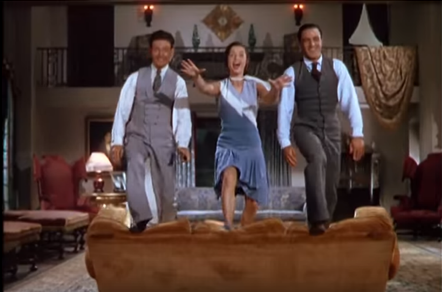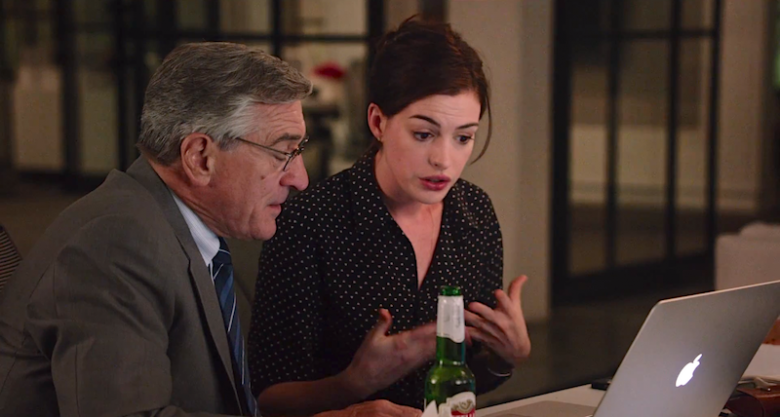The year is 1910 and Leo Tolstoy (Christopher Plummer), a Russian aristocrat and revered author (War and Peace, Ana Karenina) is 82 years old. Now the leader of the Tolstoi’s movement that proposes brotherly love and world peace through pacifism, he scorns his wealth and is considering writing a new will by which he’d relinquish all the rights of his novels to the Russian people.
Tolstoi’s wife, Contessa Sophia (Helen Mirren), opposes this new will and thus, she is in the eyes of Vladimir Chertkov (Paul Giamatti), Tolstoi’s chief follower, the enemy.
To spy on her and assure that Tolstoi signs the will, Chertkov sends an idealistic youth, Valentin Bulgakov (James McAvoy, Atonement), to work as Tolstoi’s secretary. “Write everything she does, everything she says,” Chertkov instructs Valentin and gives him a journal to do so.
On her part, Contessa Sophia quickly befriends the young man and she too gives him a journal. “Write what you see,” she tells him. “Write what you think.”
Valentin, a firm believer in the Movement, doesn’t question Tolstoi’s decision at first. But as he gets to know Sophia, and starts thinking on his own, his devotion to the movement falters.
“I typed Ana Karenina six times,” Sophia tells Valentin. “I discussed the characters with him as he wrote War and Peace.”
Not to mention the 13 children she had with him.
Is Chertkov right on wanting Tolstoi to sign the rights of his novels to the Russian people instead of to his wife and children? Valentin ponders as he bluntly asks Tolstoi whether he loves his wife and he, himself, falls in love.
At the end, the decision of whether to sign or not, is thrown back at Valentin in a humorous twist, I won’t reveal.
The Last Station is a quiet movie I enjoyed watching, especially for its realistic portrayal of a world one hundred years in the past. A world where journalists camping outside Tolstoi’s house typed their articles on typewriters, and photographers followed him dragging their cameras, the size of shoeboxes, on tripods.
A world where carriages were still drawn by horses, and trains ran on coal leaving a trail of smoke behind as they rushed majestically through the fields. A world where messages were sent by telegraph, and the phonograph that allowed the recording of the human voice had just been invented.
Tolstoi’s wife, Contessa Sophia (Helen Mirren), opposes this new will and thus, she is in the eyes of Vladimir Chertkov (Paul Giamatti), Tolstoi’s chief follower, the enemy.
To spy on her and assure that Tolstoi signs the will, Chertkov sends an idealistic youth, Valentin Bulgakov (James McAvoy, Atonement), to work as Tolstoi’s secretary. “Write everything she does, everything she says,” Chertkov instructs Valentin and gives him a journal to do so.
On her part, Contessa Sophia quickly befriends the young man and she too gives him a journal. “Write what you see,” she tells him. “Write what you think.”
Valentin, a firm believer in the Movement, doesn’t question Tolstoi’s decision at first. But as he gets to know Sophia, and starts thinking on his own, his devotion to the movement falters.
“I typed Ana Karenina six times,” Sophia tells Valentin. “I discussed the characters with him as he wrote War and Peace.”
Not to mention the 13 children she had with him.
Is Chertkov right on wanting Tolstoi to sign the rights of his novels to the Russian people instead of to his wife and children? Valentin ponders as he bluntly asks Tolstoi whether he loves his wife and he, himself, falls in love.
At the end, the decision of whether to sign or not, is thrown back at Valentin in a humorous twist, I won’t reveal.
The Last Station is a quiet movie I enjoyed watching, especially for its realistic portrayal of a world one hundred years in the past. A world where journalists camping outside Tolstoi’s house typed their articles on typewriters, and photographers followed him dragging their cameras, the size of shoeboxes, on tripods.
A world where carriages were still drawn by horses, and trains ran on coal leaving a trail of smoke behind as they rushed majestically through the fields. A world where messages were sent by telegraph, and the phonograph that allowed the recording of the human voice had just been invented.
Many things have changed since, yet the conflict between man and wife, love and duty, still resonates with us, unresolved.
Carmen Ferreiro Esteban







Beautiful description of life as it ran a bit slower than today. Somedays, it would be so nice to board that train—but where is the station, here on the east coast?
I love period films too – I would like to see this one from your decription! Love Christopher Plummer, Mirren & McAvoy too. Plummer was the in the first show I ever saw on Broadway, Othello. You couldn’t take your eyes off him whenever he was on stage.